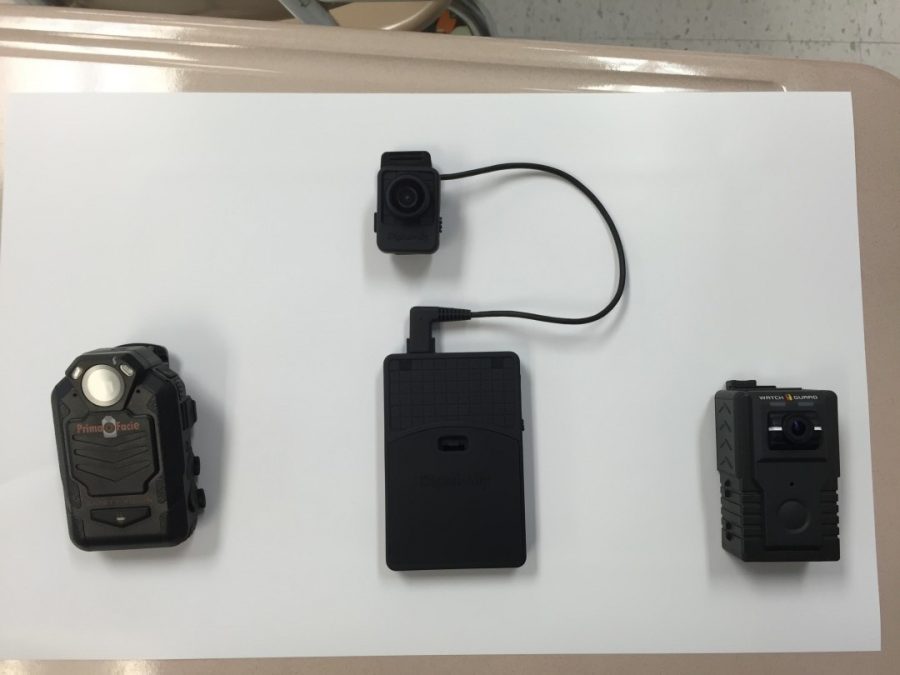Smile, You’re On Camera
January 5, 2016
Montgomery County police officers and School Resource Officers (SROs) began using body cameras on Oct. 12 in Northwest HS, Seneca Valley HS and Walt Whitman HS, as part of their Body Worn Camera (BWC) pilot program, in preparation for a countywide body camera implementation in January.
“Our rules and our policies and when we bring the police into situations is not going to change as a result of this,” Principal Billie-Jean Bensen said.
Over the past year, the Montgomery County Police Department (MCPD) have been discussing the use of body cameras by police after Md. June 1, 2015 legislation permitted law enforcement agencies to begin implementing body camera programs. The new BWC pilot program have been met with some concerns that Montgomery County Chief of Police J. Thomas Manger, addressed in a memorandum Oct. 6.
Interim superintendent Larry Bowers said, “I actually pushed back a bit because I was concerned that there was no communication out to the public.”
Bensen said principals were not notified earlier to express their opinions on the use of body cameras in their schools. However, MCPS has been working with MCPD in the last few months to develop a school program with SROs, who were given cameras to pilot in three MCPS schools.
Police Corporal Halverson, who works for the Rockville City Police Department (RCPD) Policy has participated in body camera testing in recent months, but RCPD has yet to officially implement a body camera program this year. However, the Rockville City Police are undergoing a series of scenario simulations with the body cameras. RHS does not have a Montgomery County Police Officer assigned to the school but police officers responding to incidents at RHS may be wearing cameras.
Senior Charwith Wickramaratne favors the new program and said, “the officers should be enforcing safety and I think people would feel a lot safer with them in use.”
According to the MCPD memorandum, the use of BWCs by police will strengthen “police/community relationships through increased accountability, transparency and trust.” Manger also notes in the document that body cameras will provide new objective and reliable evidence to the department.
These swift changes come after public pressure and media attention surrounding police accountability. Body cameras are now being implemented at the federal, state, county and local level. However, Halverson does not believe body cameras will change the way officers respond to situations.Halverson said, “nowadays, with everybody with their cell phones … you never know if you could be recorded.”
Body cameras are not intended for non-law enforcement activities and will only record if turned on by an officer. In the memorandum, the chief of police ensures student and teacher privacy since body cameras will not be used in locker rooms, dressing rooms or restrooms. Footage from these cameras is also protected in order to ensure student safety.
Since this is a pilot program, many different factors and changes are still being considered. Bowers still has several concerns regarding the program, and said, “My concern was how does it work in the school building … and when you have students involved how do you actually protect students in this process.”



